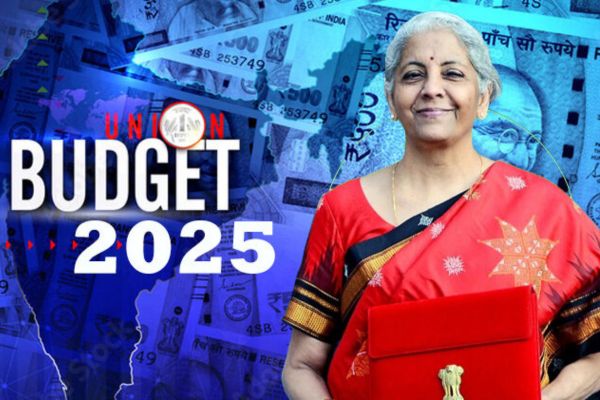As the Union Budget 2025 approaches, industry stalwarts from diverse sectors have voiced their expectations and priorities for India’s economic roadmap. From infrastructure development, tax rationalization, and defence manufacturing to AI innovation, renewable energy, and self-reliance in semiconductors, the demands highlight a collective vision for a resilient and self-sufficient India. Leaders urge the government to address key challenges such as compliance burdens, global collaboration, and technological advancements while ensuring sustainability and economic growth. Their recommendations underscore the importance of strategic investments and reforms to position India as a global leader across industries.
Praveen Kumar Bhandari, Chief Financial Officer, Hi-Tech Radiators Pvt Ltd.
”We urge the government to prioritize investments in infrastructure development in the upcoming Budget 2025 as it could play a pivotal role in creating world-class infrastructure and positioning India as a global manufacturing hub. The government should also look at rationalising the tax structure while reducing the compliance burden on the taxpayer. The government’s move to levy higher GST and additional cess on certain products to raise more funds may not be a good idea, and it may promote tax evasions while encouraging the unorganised sector to supply counterfeit products to take advantage of the situation. We would also like to draw the government’s attention towards the tax compliance burden; be it direct or indirect taxation, its burden has been increasing on the taxpayers. Additionally, the government also looks at providing some tax incentives to exporters by reintroducing Sec 80 HHC of the income tax, as it will also help the country in offsetting the impact of the ever-increasing trade deficit driven by rising crude oil import bills. The interest equalisation scheme should also be made more liberal with no limit on the subvention of the interest for available pre- and post-packing credit. Besides this, the government should also look at rationalising personal income tax rates, particularly ‘surcharges and cess,’ which are always temporary in nature and are levied for a very specific purpose. Faceless assessment and appeal schemes under income tax should be made optional, as they have slowed down the disposal rate with heaps of high-pitch assessment/appeal orders.”
Jaikaran Chandock, Director, Balu Forge Industries Ltd
”Defence will be one of the key focus areas for the upcoming Union Budget 2025, as the government intensifies its efforts to achieve self-reliance in design, development and manufacturing of defence equipment. The budget should propose an increase in the capital outlay for the defence sector to bolster capacity and capability, driving progress towards achieving self-reliance and attaining the defence exports target of ₹50,000 crore by 2029. With a dynamic defence manufacturing sector, India can boost indigenisation as well as domestic procurement of defence products and can become a global hub for sourcing advanced defence equipment. Therefore, the budget needs to propose measures and schemes that encourage technology transfer, public-private partnerships, R&D and collaboration with global players and Original Equipment Manufacturers (OEMs). A strong defence manufacturing ecosystem will help the sector unlock emerging opportunities.”
Dr Ajai Chowdhry, Founder HCL, Chairman EPIC Foundation & MGB, National Quantum Mission of India
“The US imposing restrictions on import of GPU’s to India brings us back to the old licensing regime to haunt us again. And China can follow with other technologies. And the rest of the West too. Imagine export of semiconductor manufacturing machines being restricted tomorrow which will stop our semiconductor ambitions!
This is reminiscent of the export controls on Space and Atomic energy that we faced in the past. And we then emerged out of that successfully getting our brilliant engineers creating our own technologies.
I am sure most of the design of NVIDIA and AMD GPU’s must have been done in India by Indian engineers.
Recently we had written about how critically we have to look at strategic autonomy and become self-sufficient in key technologies like semiconductors, quantum technologies, security and defence, AI and drones.
This is the new Unipolar world where every country is on its own. And with the US and China vying for global dominance, India’s rise will resisted by both.
In semiconductor chips we have created our own RISCV technology in IITM for which we don’t need to keep paying licence fees. Using this we should design our own chips in RISCV to secure ourselves from future sanctions. This should be taken up in a mission mode with funds provided under ISM’s new DLI policy. And open up DLI for all Indian companies including corporates/ERCD exporters, MSME’S and Startup by increasing the size of the funding from the small 30 CR with generous 50 CR to 150 CR. Maybe we can create our own NVIDIA and AMD in the next ten years!”
Mr. Sarvagya Mishra, Founder & Director at Superbot
“All eyes will be on the Finance Minister as she announced the Union Budget 2025. We believe that this year, we have an incredible opportunity to position India as the global hub for AI innovation and hope that the Union Budget 2025 will give a great boost to AI research, development, and commercialization to drive job creation and economic growth. The government should consider supporting entrepreneurship in the field, by introducing tax rebates and subsidies for AI start-ups in the domain of healthcare, education, and governance – promoting AI innovation in solving real world problems. The budget should look into addressing hyper-local challenges, improving agricultural yield or making education more accessible in India. Furthermore, provisions should also be in place for boosting the AI infrastructure, high-performance computing and skill building in the domain. The government should also consider giving tax rebates to companies investing in skill-based hiring or upskilling initiatives. The focus should also be in promoting start-up-specific investment funds or supporting tokenization models to enhance funding access to early-stage and growth-stage start-ups. The government may also have the critical task of ensuring data privacy, while allowing start-ups to innovate in creating global models of excellence. Government initiatives in promoting global collaboration will help Indian start-ups gain recognition and prominence at a global stage”.
Mr. Rakesh Malhotra, Founder, Livguard
“With the upcoming Union Budget, we eagerly anticipate the government’s continued emphasis on sustainability, especially in the renewable energy and electric mobility sectors. At Livguard, we are at the forefront of this transformation. Our Solar360 rooftop solar solutions empower both homes and businesses to transition to clean, sustainable energy, delivering higher solar generation and long-term cost savings. By enabling efficient, eco-friendly energy usage, we’re helping India reduce its carbon footprint while ensuring energy security. Alongside this, our Integrated Drivetrain Solutions—India’s first homegrown, comprehensive EV drivetrain—are revolutionising electric mobility. Designed and manufactured entirely in India, these solutions cater to two-wheelers, e-rickshaws, and L5 vehicles, offering unparalleled quality, performance, and reliability. By reducing import dependency, we are positioning India as a global leader in e-mobility. As India moves toward a sustainable future, we urge the government to continue incentivising clean energy solutions and electric vehicles, which are integral to achieving energy security, reducing emissions, and fostering self-reliance. Livguard remains committed to driving innovation and sustainability in India’s clean energy and e-mobility ecosystems.”
Tanmoy Duari, CEO, AXITEC Energy India Pvt. Ltd, leading solar module manufacturer
“As India strives to achieve 500 GW of non-fossil fuel capacity by 2030, we expect the upcoming budget to accelerate the growth of the renewable energy sector. At AXITEC Energy India Pvt Ltd, we anticipate incentives for solar energy storage, green hydrogen, and grid-scale solar projects, which will help bridge the gap between India’s installed solar capacity of 60 GW and the ambitious target of 300 GW by 2030. Clarity on customs duty exemptions and GST reductions will also be crucial in making renewable energy more affordable. A supportive budget will propel India’s transition to a low-carbon economy.”
Vivek Tyagi, Managing Director, Analog Devices India
“As we stand at the cusp of transformative growth in India’s semiconductor sector, this year’s Union Budget holds the potential to be a defining moment in realizing our aspirations. The ongoing PLI schemes have laid the foundation for a robust manufacturing ecosystem, however, as India reaches a pivotal stage in its journey toward becoming a global manufacturing hub, we need to further enhance these initiatives towards an end-to-end supply chain ecosystem. The focus must now shift to strengthening these policies and placing greater emphasis on promoting ‘Design led manufacturing’ schemes to enhance the operations within our borders. Building India’s design capabilities will be crucial for nurturing the skills needed to drive innovation, create intellectual property, and establish a vibrant semiconductor ecosystem.
At Analog Devices, we share a similar vision of ‘Design in India, for India.’ This approach is about more than just technology, it is about creating a sustainable, robust ecosystem that empowers India to lead and own the semiconductor space. I firmly believe this year’s budget will enable India to transition from being merely a consumer of semiconductors and an assembler of products to becoming a global leader in the design and manufacturing of high-end components. This shift will not only advance our technological capabilities but will also unlock immense economic potential, positioning India firmly on the global semiconductor map and propelling us towards the vision of a ‘Viksit Bharat.”
Syed Sajjadh Ali, Managing Director, Electrical Sector, India, Eaton
“We are optimistic about the upcoming Union Budget 2025. We hope to see continued support for infrastructure development and investment in the renewable energy. These measures will not only boost economic growth but also create a more sustainable future for India. We hope the government will prioritize investments in smart grid technologies and digital infrastructure. These advancements are crucial for enhancing the efficiency and reliability of India’s electrical systems. We anticipate measures that will encourage research and development in the electrical sector, fostering innovation and positioning India as a global leader in electrical engineering. Additionally, we expect policies that will simplify the tax regime and enhance ease of doing business, which will be crucial for fostering innovation and entrepreneurship in the electrical sector. Furthermore, we urge the government to facilitate the growth of the data center segment to leverage the big data scenario the world is currently facing. This would not only support the burgeoning digital economy but also ensure that India remains competitive on a global scale by providing robust and reliable data infrastructure.”
















